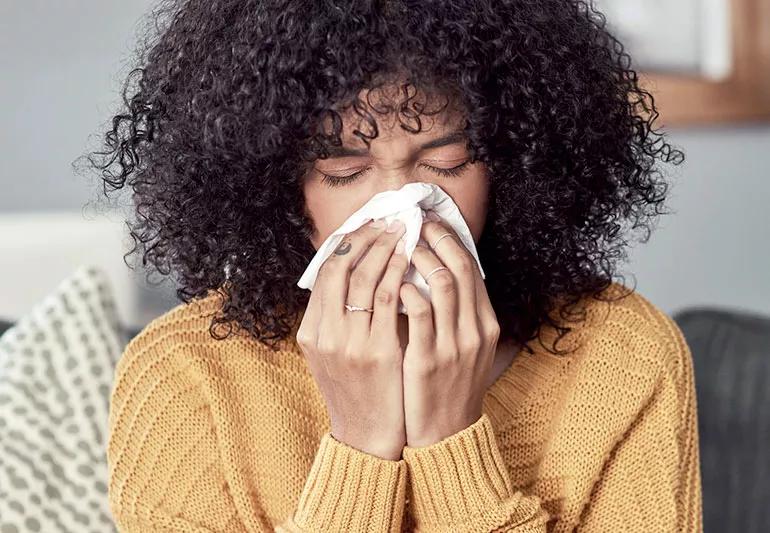Types of problems
There are various types of social and mental health problems in any large emergency.
Social problems:
- pre-existing: e.g. poverty and discrimination of marginalized groups;
- emergency-induced: e.g. family separation, lack of safety, loss of livelihoods, disrupted social networks, and low trust and resources; and
- humanitarian response-induced: e.g. overcrowding, lack of privacy, and undermining of community or traditional support.
Mental health problems:
- pre-existing: e.g. mental disorders such as depression, schizophrenia or harmful use of alcohol;
- emergency-induced: e.g. grief, acute stress reactions, harmful use of alcohol and drugs, and depression and anxiety, including post-traumatic stress disorder; and
- humanitarian response-induced: e.g. anxiety due to a lack of information about food distribution or about how to obtain basic services.
Prevalence
Most people affected by emergencies will experience distress (e.g. feelings of anxiety and sadness, hopelessness, difficulty sleeping, fatigue, irritability or anger and/or aches and pains).
This is normal and will for most people improve over time. However, the prevalence of common mental disorders such as depression and anxiety is expected to more than double in a humanitarian crisis.
The burden of mental disorders among conflict-affected populations is extremely high: WHO’s review of 129 studies in 39 countries showed that among people who have experienced war or other conflict in the previous 10 years, one in five people (22%) will have depression, anxiety, post-traumatic stress disorder, bipolar disorder or schizophrenia (1).
According to WHO’s review, the estimated prevalence of mental disorders among conflict- affected populations at any specific point in time (point prevalence) is 13% for mild forms of depression, anxiety, and post-traumatic stress disorder and 4% for moderate forms of these disorders. The estimated point prevalence for severe disorders (i.e. schizophrenia, bipolar disorder, severe depression, severe anxiety, and severe post-traumatic stress disorder) is 5%. It is estimated that one in 11 people (9%) living in a setting that has been exposed to conflict in the previous 10 years will have a moderate or severe mental disorder.
In conflict-affected settings, depression and anxiety increase with age. Depression is more common in women than in men.
People with severe mental disorders can be especially vulnerable during and after emergencies and they need access to basic needs and clinical care. A review published in 2014 of the health information system from 90 refugee camps across 15 low- and middle-income countries found that 41% of health-care visits for mental, neurological and substance use disorders were for epilepsy/seizures, 23% for psychotic disorders, and 13% for moderate and severe forms of depression, anxiety or post-traumatic stress disorder.
Effective emergency response
WHO-endorsed interagency mental health and psychosocial support guidelines for an effective response to emergencies recommend services at a number of levels – from basic services to clinical care. Clinical care for mental health should be provided by or under the supervision of mental health specialists such as psychiatric nurses, psychologists or psychiatrists.
Community self-help and social support should be strengthened, for example by creating or re-establishing community groups in which members solve problems collaboratively and engage in activities such as emergency relief or learning new skills, while ensuring the involvement of people who are vulnerable and marginalized, including people with mental disorders.
Psychological first aid offers first-line emotional and practical support to people experiencing acute distress due to a recent event and should be made available by field workers, including health staff, teachers or trained volunteers.
Basic clinical mental health care covering priority conditions (e.g. depression, psychotic disorders, epilepsy, alcohol and substance abuse) should be provided at every health-care facility by trained and supervised general health staff.
Psychological interventions (e.g. problem-solving interventions, group interpersonal therapy, interventions based on the principles of cognitive-behavioural therapy) for people impaired by prolonged distress should be offered by specialists or by trained and supervised community workers in the health and social sector.
Protecting and promoting the rights of people with severe mental health conditions and psychosocial disabilities is especially critical in humanitarian emergencies. This includes visiting, monitoring and supporting people at psychiatric facilities and residential homes.
Links and referral mechanisms need to be established between mental health specialists, general health-care providers, community-based support and other services (e.g. schools, social services and emergency relief services such as those providing food, water and housing/shelter).
Looking forward: emergencies can build better mental health systems
Mental health is crucial to the overall social and economic recovery of individuals, societies, and countries after emergencies.
Global progress on mental health reform will happen more quickly if, during every crisis, efforts are initiated to convert the short-term increase in attention to mental health issues combined with a surge of aid, into momentum for long-term service development. Many countries have capitalized on emergency situations to build better mental health systems after crises.
In the Syrian Arab Republic, despite — or perhaps because of — the challenges presented by the ongoing conflict, mental health services and psychosocial support are becoming more widely available than ever before. Mental health and psychosocial support is now offered in primary and secondary health and social care facilities, through community and women’s centres and through school-based programmes, in more than 12 Syrian cities located in governorates severely affected by the conflict. This contrasts with the situation before the conflict, when mental health care was mainly provided in mental hospitals in Aleppo and Damascus.
In Sri Lanka, during the immediate aftermath of the 2004 tsunami, mental health was a key priority. This led to a mental health system reform, supported by WHO, which addressed the shortage of human resources for mental health such as different cadres of dedicated mental health staff. As a result, 20 of the country’s 27 districts now have mental health services infrastructure, compared with only 10 before the tsunami.
When Typhoon Haiyan devastated the Philippines in 2013, there were only two facilities that provided basic mental health services and the number of people able to provide support was insufficient to meet the need. A major scale up of government mental health services was supported by WHO and partners. As a result, 100% of the Philippines general health facilities in the affected region now have staff who are trained in the management of mental disorders.
Mental health should also be a component of national disaster preparedness plans. WHO and the Pan-American Health Organization are supporting countries in the Caribbean sub-region of the Americas so that they will be able to provide adequate mental health and psychosocial support to people in need following hurricanes and other natural disasters.
In many humanitarian and conflict settings, access to quality, affordable mental health care is limited. This access can be further diminished due to public health emergencies such as COVID-19, which tend to disrupt services and increase needs further.
WHO response
WHO is the lead agency in providing technical advice on mental health in emergency situations. In 2022 WHO is operational on mental health in a range of countries and territories affected by large-scale emergencies such as Afghanistan, Bangladesh, Ethiopia, Iraq, Jordan, Lebanon, Libya, Nigeria, South Sudan, the Syrian Arab Republic, Turkey, Ukraine, the West Bank and Gaza Strip and Yemen.
WHO co-chairs the IASC Reference Group on Mental Health and Psychosocial Support (MHPSS)in Emergency Settings that provides advice and support to organizations working in emergencies and to country-level MHPSS technical working groups in more than 50 countries affected by emergencies.
The Organization works globally to ensure that the humanitarian mental health response is both coordinated and effective, and that following humanitarian emergencies, all efforts are made to build/rebuild mental health services for the long-term.
WHO’s advice and tools are used by most large international humanitarian organizations active in mental health. WHO and partners have published a range of practical tools and guidelines to meet the mental health needs of people affected by emergencies.
- New WHO prevalence estimates of mental disorders in conflict settings: a systematic review and meta-analysis
link







More Stories
Collaborative Care Could Help Reduce Disparities in Mental Health Treatment
Secondary traumatic stress and vicarious posttraumatic growth in oncology nurses: the mediating role of empathy
The prevalence of post-traumatic stress disorder among emergency medical services personnel in Saudi Red Crescent Authority, Riyadh, Saudi Arabia